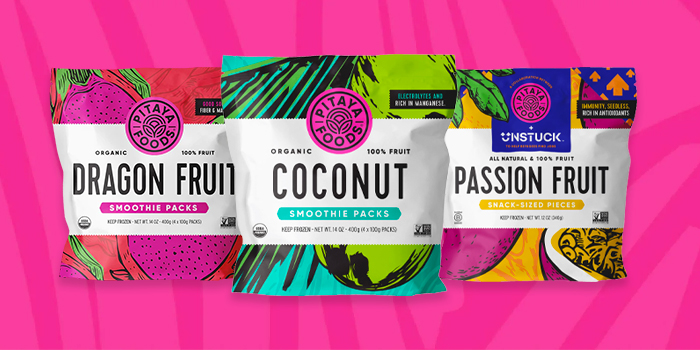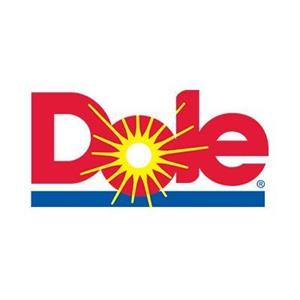Expo West Preview: Frozen Smoothie Kit Brands Embrace Functionality, Convenience
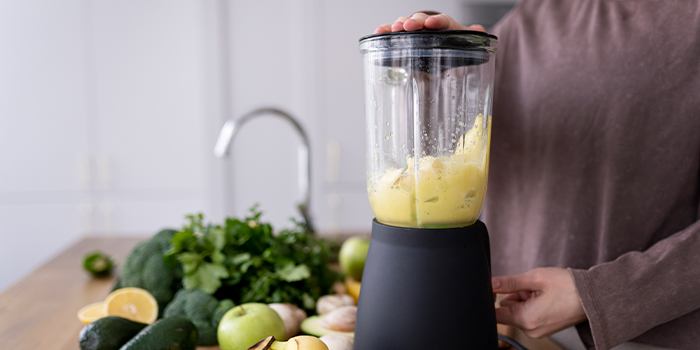
When the pandemic lockdowns of 2020 disrupted daily routines, such as purchasing a freshmade smoothie on-the-go at a juice bar, many shoppers packed their freezers full of frozen fruit and learned to make their own smoothies at home. Coupled with the broader pantry loading behavior where consumers prioritized nonperishables, the frozen fruit set saw a major sales boost, prompting an influx of brands into a grocery set notorious for limited shelf space.
Three years later, the category’s growth has continued, albeit at a lower rate. But as more Americans continue to work from home and look to cut extraneous expenses — say, a stop at the juice bar on the way to the gym — lockdown-era habits have entrenched themselves into consumer routines. In turn, many frozen fruit producers have embraced smoothie kits, with some innovative brands managing to outpace the category and maintain strong growth despite the headwinds facing the CPG industry today.
At Natural Products Expo West 2023 this week, numerous brands from dominant category leaders to small startups making their U.S. launch will showcase new innovations to bring more consumers into the smoothie space.
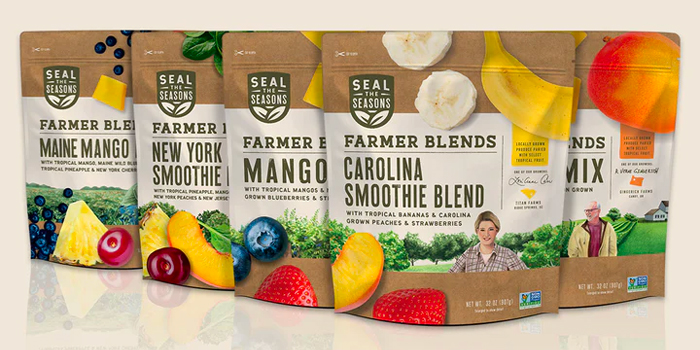
New Habits
According to Alex Piasecki, co-founder and COO of Seal the Seasons (Expo Booth 5535) – a frozen produce brand that sources locally grown fruits and vegetables for each region it sells in – the frozen fruit category’s growth has been heavily impacted by record high inflation.
Citing SPINS data, Piasecki said that Seal the Seasons grew over 100% in both 2020 and 2021, while the category grew approximately 40% and 20% in those respective years. While Seal the Seasons is continuing to outpace the category — up around 35% in retail dollar sales last year — frozen fruit as a whole was up 2.5% in dollar sales for the 52-weeks ending January 1. Average pricing has increased 12% since Q1 2022, leading to an 8% drop in unit sales.
Although “a lot of brands are suffering,” he said, the brands that have positioned themselves well through innovation and marketing are ideally poised to continue growing in the face of category slowdown.
“I think it’s a category that is, at its base, very healthy and pretty stable,” Piasecki said. “When we have our consumer panel data it shows that they’re visiting this category every time they go to the grocery store. So the repetition of the repeat purchase in this category is really, really strong, especially with branded products.”
At Natural Products Expo West 2023 this week, Seal the Seasons will be showcasing its latest product launch from 2022, a line of frozen Smoothie Kits, which contain preblended fruit and vegetable “gems, some of which had added functional ingredients as well,” that ready to be blended with water for an immediate smoothie.
Piasecki said he believes that at-home smoothie making has become, if not permanent, a semi-permanent behavioral change from the pandemic, especially as more consumers work from home and have grown familiar with how to use a blender. However, the kits provide Seal the Seasons a way to bring in more consumers by providing a more convenient and easier solution for those who aren’t quite sure how to make their own smoothies.
“I think the frozen fruit section is for those who know what they’re doing, when it comes to buying frozen fruit and using it,” he said. “That subcategory of smoothie kits kind of came about because a lot of people … don’t necessarily have that confidence with a blender.”
Innovation and flexibility has also been key to maintaining growth for another rising frozen fruit brand, Pitaya Foods (Expo Booth 5278). Founded in 2009 by CEO Chuck Casano — who also founded and runs California DSD distributor HiTouch — Pitaya has specialized in frozen fruit offerings that had previously been rare to find in U.S. home kitchens, such as dragon fruit, passion fruit, jackfruit and avocado. The brand also produces a line of organic smoothie packs in dragon fruit, coconut and açaí berry varieties. Each 14 oz bag contains four 100 gram preblended pouches of fruit. Unlike Seal the Seasons, consumers may need to come up with their own smoothie recipes, though Pitaya Foods does offer suggestions on its website.
Like Seal the Seasons, Pitaya has managed to outpace the category and expand its reach in brick and mortar retail over recent months. Now in about 22,000 doors nationwide, the brand added about 3,000 Walmart locations last year, Casano said, and is preparing a “huge launch” in Sam’s Club store next month. Pitaya is also national in Kroger and has additional foodservice revenue through a long term partnership as a dragon fruit supplier for Jamba Juice.
Even as Pitaya expands, Casano noted the environment for frozen fruit and smoothie kit brands is challenging as companies compete for limited freezer space. In addition to major conglomerates like Dole, brands are also up against private label — which can easily best smaller companies on pricing. That’s why focusing on unique ingredients like dragon fruit and aloe vera has been key to continuing Pitaya’s growth.
“We’re bringing discovery, we’re increasing the shopping cart, we’re bringing people into this category to discover new things that they’re not going to discover through your whole private label door,” Casano said.
Fresh Blends
Innovation has also been a focus for larger companies, such as Dole (Expo Booth 359), which has introduced a functional Boosted Blends smoothie mix line, which includes Vita-C, Energize and Protein varieties. Its latest addition to the line is Berry Spark, which contains fruit cubes made from berries, banana, cherry and flax seed, with added functional ingredients to boost cognitive health. According to Jennifer Hirano, co-head of marketing at Dole, the new SKU meets growing consumer interest in brain health and in particular appeals to Dole’s core 25-44 Gen Z and Millennial target demographic.
The frozen fruit category, including smoothie mixes, is a $1.7 billion category in U.S. retail, Hirano said, but smoothies have a household penetration of just 5%. Of that smoothie segment, Dole is a dominant category leader – controlling 49% of the section.
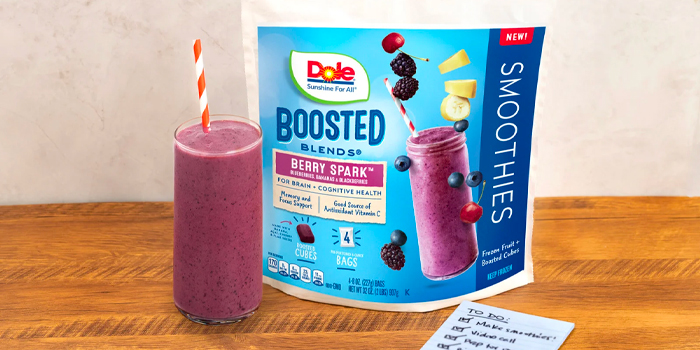
Dole’s primary smoothie consumers skew heavily towards women and families with children, according to internal data. Around 53% of frozen smoothie shoppers write shopping lists ahead of grocery store trips and the category’s consumers over-index in people who follow recommendations from friends and family, read product reviews, and seek out new products on social media — making word of mouth and digital marketing vital to generating sales.
With Gen Z, in particular, Dole is also focusing on its premade frozen smoothie bowl line, which after defrosting are ready to eat with no additional prep. That extra convenience, Hirano said, is particularly appealing to younger consumers — many of whom are still relying on their parents to handle grocery shopping. Millennials, meanwhile, are more likely to turn to the blender, but Dole’s smoothie mixes are still designed with convenience in mind by including pre-proportioned packages within each multi-serve bag.
Casano also highlighted smoothie bowls as a strong opportunity for innovation, noting that it fits into the rise of “novelty” smoothie formats like cubes and pops over recent years. Bowls, he said, could help provide brands with grab-and-go options, and he noted a number of new products rolling out to stores from big companies as well as private label versions in Target and Whole Foods.
“I do think smoothie bowls are a good option that opens up a new sales channel to frozen, which typically my company hasn’t enjoyed, like the c-store or grab-and-go,” he said.
Although smoothie kits may only make up a small part of the $1.7 billion frozen fruit space, Hirano said she believes smoothies will continue to play a larger role moving forward. Dole’s açaí bowls, for example, are also now being merchandised in the breakfast section of certain retailers, alongside frozen burritos and egg sandwiches. As the total category continues to grow, she said Dole is increasingly putting more sales and marketing support behind its 16-year-old frozen division, an initiative that began about five years ago and has steadily increased since as more innovations have launched.
“Back to 16 years ago, it was really just putting bags of fruit, frozen, into somebody’s freezer,” she said. “But now it’s all about value added. How do we get to better nutrition? How do we have people using fresh, frozen fruit in more of their more of their meals, whether it be breakfast, or a snack, or lunch?
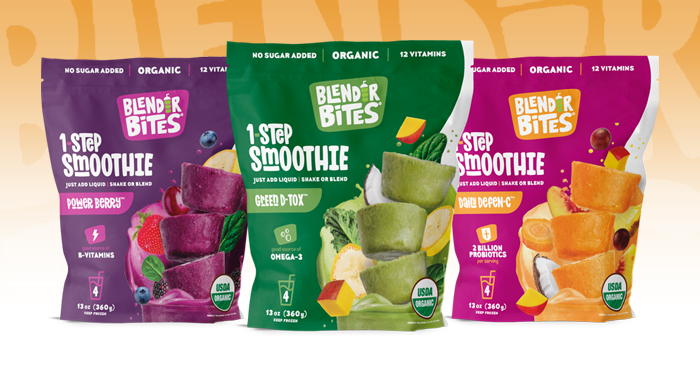
Launching Frozen
And despite the difficulty of breaking into the freezer aisle, new brands are still looking to build on the growing awareness of smoothie mixes. One of those new brands is Canadian company Blender Bites (Expo Booth N1042), founded by CEO Chelsea Hodge in 2017, which is making its U.S. debut this year at Expo West — showcasing rebranded packaging — and will be rolling out to major retailers in the coming months.
Blender Bites has similarly focused on providing unique, organic ingredients and functionality as a point of differentiation, with flavors such as One Step Frappe that provide a taste and caffeine boost akin to an “elevated Frappuccino” but with added vitamins and 50% less sugar than the Starbucks menu staple, Hodge said. The brand was among the first to the market in Canada with its frozen fruit cubes, she said, and has now expanded into major retailers such as Costco Canada and Loblaws, among others.
The business is publicly traded, giving it more access to capital, but heading into the U.S. Hodge said the primary challenge will be driving sales while staying true to the brand’s better-for-you positioning.
“You have to have lower price points on shelf, because you need certain velocities to stay on. Frozen has really high standards, if you’re not selling XYZ, you’re off the shelf pretty quickly. So it’s a challenge, how do you manage all those expenses and those costs from the brand side without compromising on ingredients and all these different things.”


